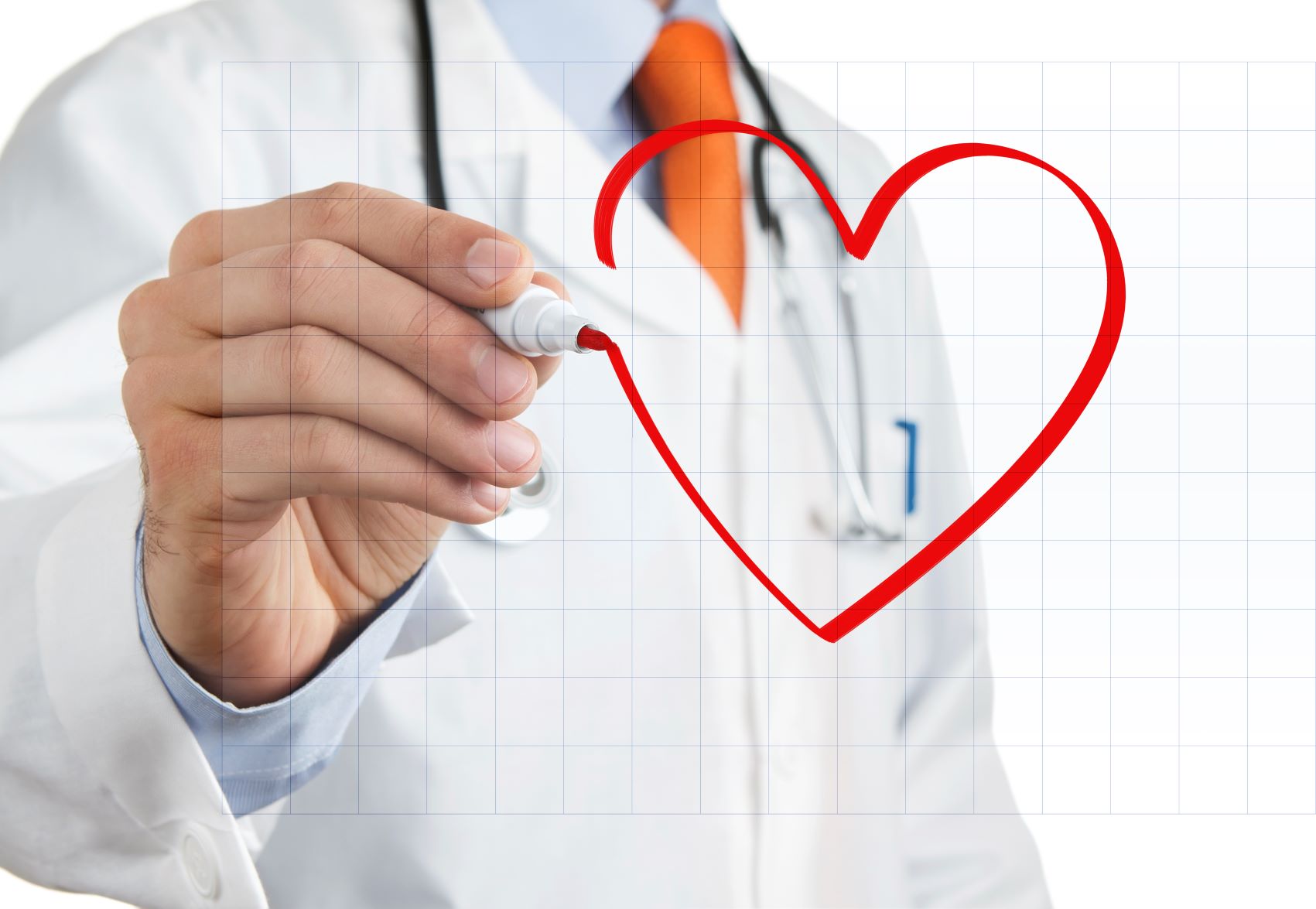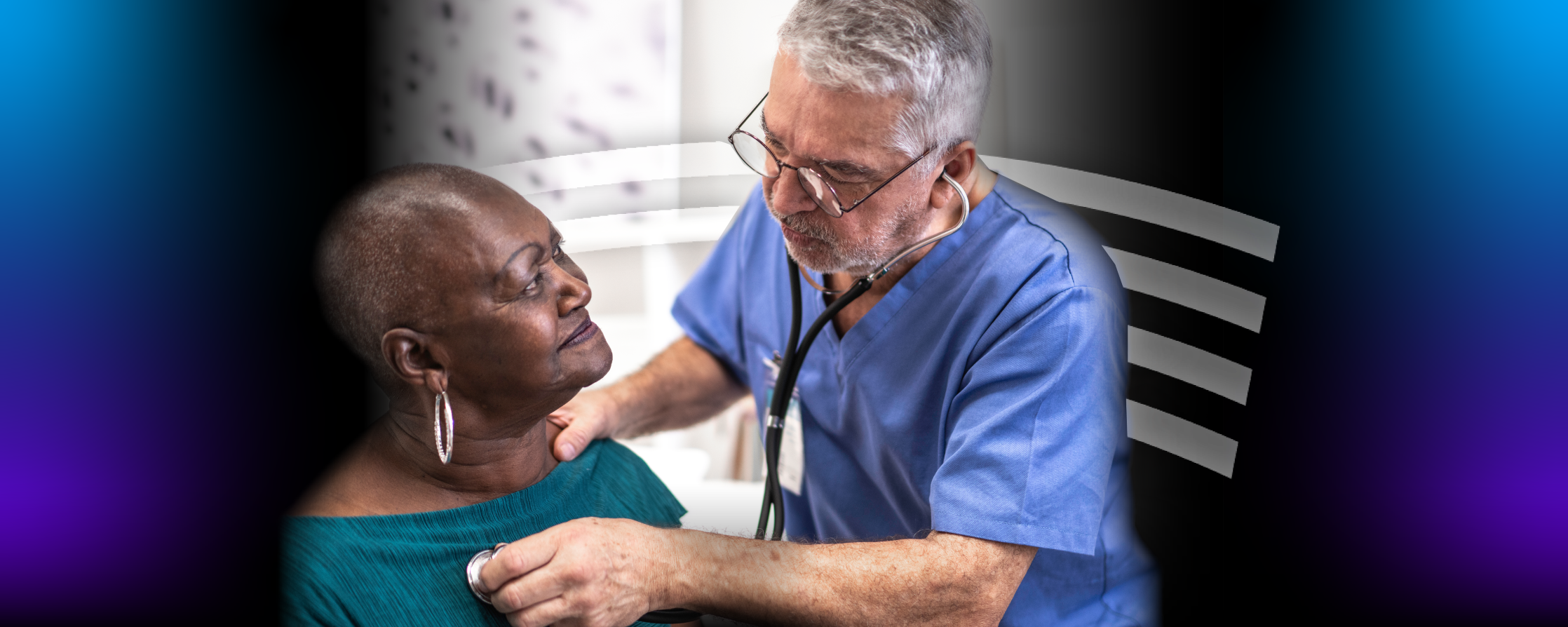If you’re having a heart attack, every second counts. Most heart damage happens within the first two hours of a heart attack, so knowing the early warning signs can help you act fast and get the treatment you need.
What is a Heart Attack?
A heart attack, also known as a myocardial infarction, happens when there is a blockage in blood flow to the heart, depriving the heart muscle of oxygen. If the blood flow is not restored quickly, the heart attack could result in permanent heart damage or death. Heart attacks are medical emergencies that require immediate attention.
Types of heart attacks include:
- ST-Segment Elevation Myocardial Infarction (STEMI): A heart attack caused by a complete blockage of a coronary artery, requiring urgent medical intervention
- Non-ST Segment Elevation Myocardial Infarction (NSTEMI): A heart attack caused by a partial blockage of a coronary artery and may require medical intervention
- Silent heart attack: A heart attack that may happen without noticeable symptoms, making it difficult to diagnose and seek proper medical attention
Early Heart Attack Care
In many cases, there are symptoms that can be early warning signs of an impending heart attack. Early heart attack care (EHAC) education helps you recognize the early warning signs of a heart attack, empowering you to take action and seek treatment before heart damage occurs.
Heart attack symptoms can vary from person to person, and the progression of symptoms can also differ. While not every heart attack follows the same pattern, here is how symptoms may worsen over time:
- Symptom onset: A heart attack typically begins with a blockage restricting blood flow to the heart. Initially, symptoms may be mild or intermittent, and some people may not even realize they're having a heart attack. Early warning signs of a heart attack may include mild chest symptoms, including aching, burning, pressure or soreness. In the earliest stages of a heart attack, these warning signs are not usually severe and typically come and go sporadically.
- Increasing intensity: As a heart attack progresses, symptom intensity often increases. Chest comfort may become more severe or prolonged. You may feel a crushing sensation or a heavy weight on the chest, and the pain may radiate to other areas of the body, like the arms, back, neck, jaw or stomach.
- Persistent symptoms: Eventually, heart attack symptoms tend to become more persistent. Chest discomfort may continue for extended periods without relief. Pain and discomfort in other areas may also intensify.
- Complications: In some cases, complications may arise as the heart attack progresses. These may include abnormal heart rhythms or arrhythmias, heart failure, cardiogenic shock or cardiac arrest.
If you notice early signs of a heart attack in yourself or someone else, call 9-1-1 immediately, even if symptoms are mild or happening intermittently. If you see someone collapse, stay calm, call 9-1-1 and begin performing hands-only cardiopulmonary resuscitation (CPR), CPR without mouth-to-mouth breaths. If an automated external defibrillator (AED) is available, deploy it as soon as possible, following the provided instructions. By knowing the warning signs and acting fast, you could save a life.
What Are Heart Attack Symptoms?
Recognizing the symptoms of a heart attack is vital for prompt medical intervention. While symptoms can vary from person to person, being aware of common indicators can help ensure you get the care you need. Heart attack symptoms that people most often experience include:
- Chest discomfort, pressure, tightness or pain that lasts for several minutes
- Aching, numbness or squeezing sensations in the upper body, including the arms, back, neck or jaw
- Shortness of breath or difficulty breathing, often accompanied by chest discomfort
- Excessive sweating, cold sweats or a feeling of clamminess unrelated to physical exertion or room temperature
- Indigestion, nausea or vomiting
- Feeling faint, dizzy or lightheaded
- Unexplained fatigue
How is a Heart Attack Diagnosed?
Heart attack diagnosis begins by recognizing the early symptoms and seeking prompt medical care. Once you’re at the hospital and depending on your symptoms and condition, your health care provider may use several tests to assess your cardiac health, including an electrocardiogram (ECG/EKG). Diagnostic tests may also include blood samples to help detect cardiac biomarkers that indicate heart muscle damage, and imaging tests, such as echocardiography or angiography, which provide detailed pictures of the heart to help your health care provider evaluate your condition.

Heart Attack Treatment Options
Your options for heart attack treatment depend on the severity of your condition and how quickly you seek medical care. Taking preventive steps like managing risk factors, making healthy lifestyle choices and participating in cardiac rehabilitation can minimize the chances of future cardiac events. Heart attack treatments for immediately restoring blood flow to the affected area and preventing further damage may include:
Medications such as antiplatelet therapies, beta-blockers and clot-busting drugs can help manage symptoms and prevent complications. People having trouble breathing or with low blood oxygen levels ofte receive supplemental oxygen through a tube or a mask, which increases the amount of oxygen circulating in the blood.
PCI is a procedure that involves opening the blocked artery using a stent or balloon catheter to restore blood flow.
CABG is a surgical procedure that creates bypasses around the blocked arteries to improve blood flow to the heart.
Our Approach to Heart Attack Treatment
Cooper and Inspira Cardiac Care offers a full spectrum of services, from diagnosis to advanced cardiac surgery and rehab, in convenient locations across the South Jersey region. Integrating Inspira’s advanced cardiac services with the Cooper Heart Institute means you can access a network of more than 65 physicians delivering coordinated care—from diagnosis to minimally invasive procedures, advanced cardiac surgery and cardiac rehab.

